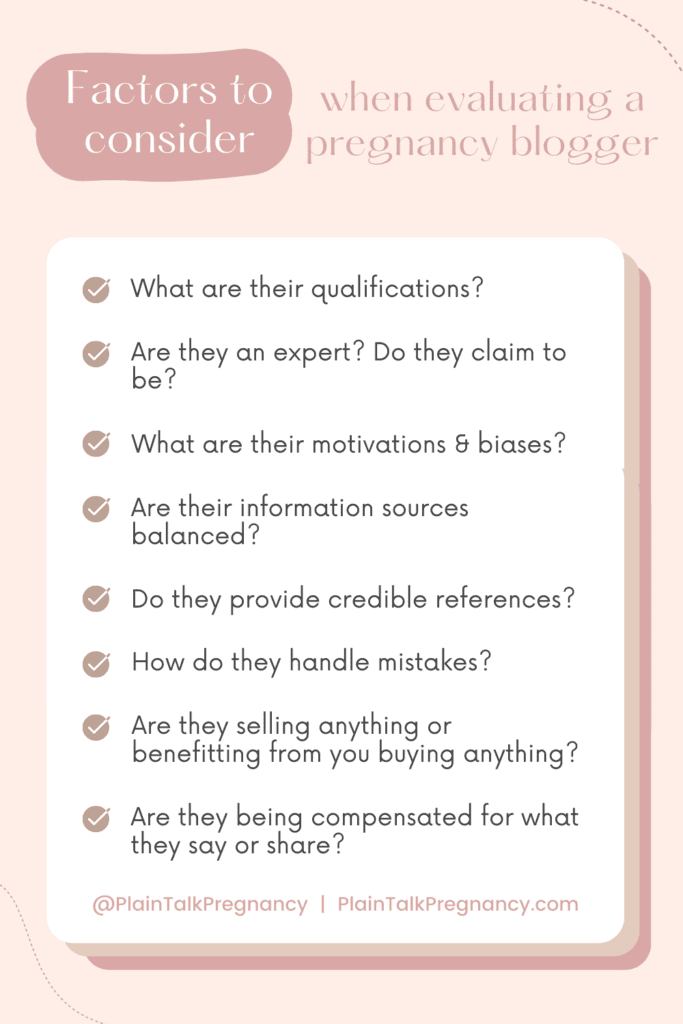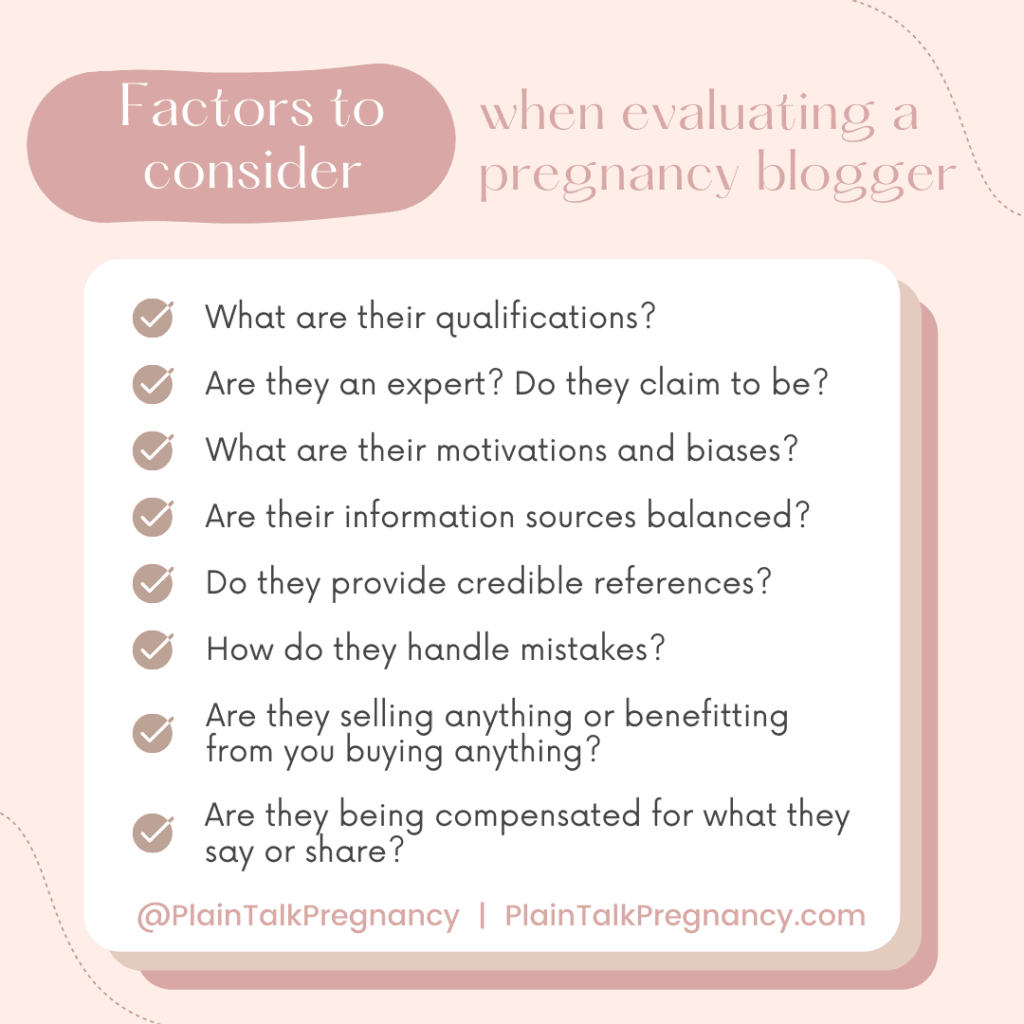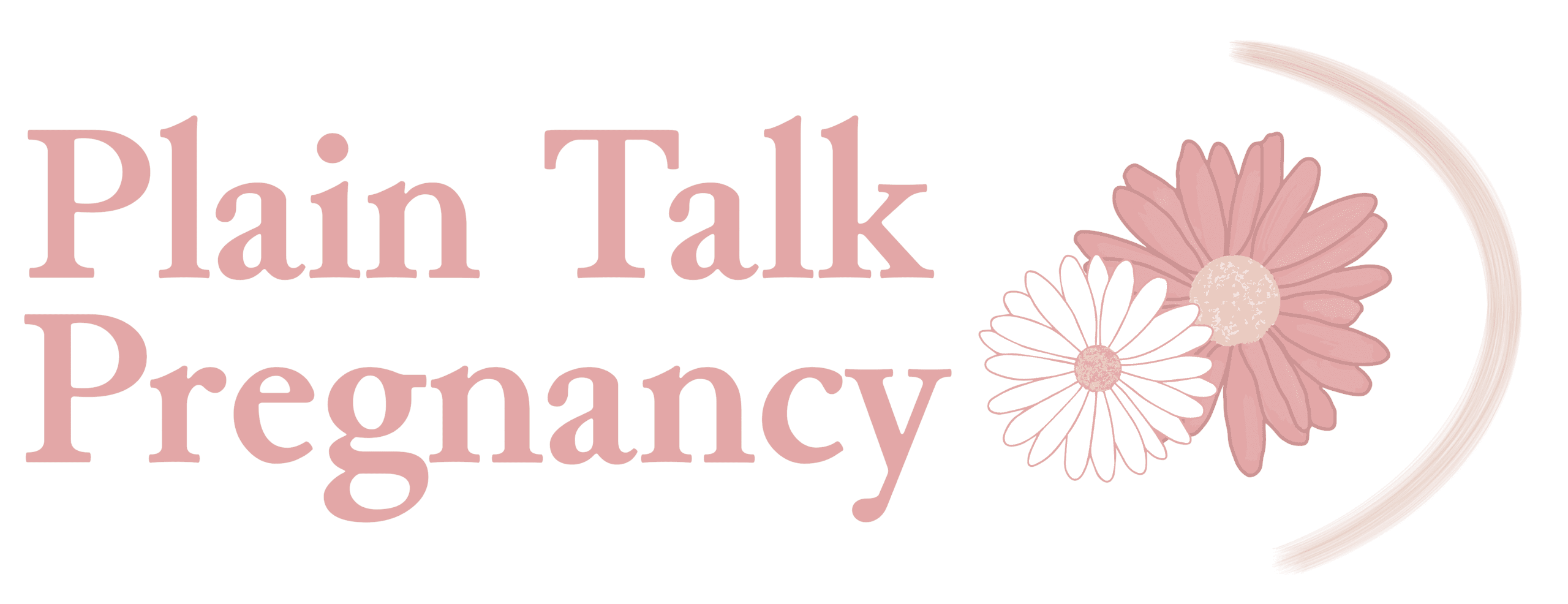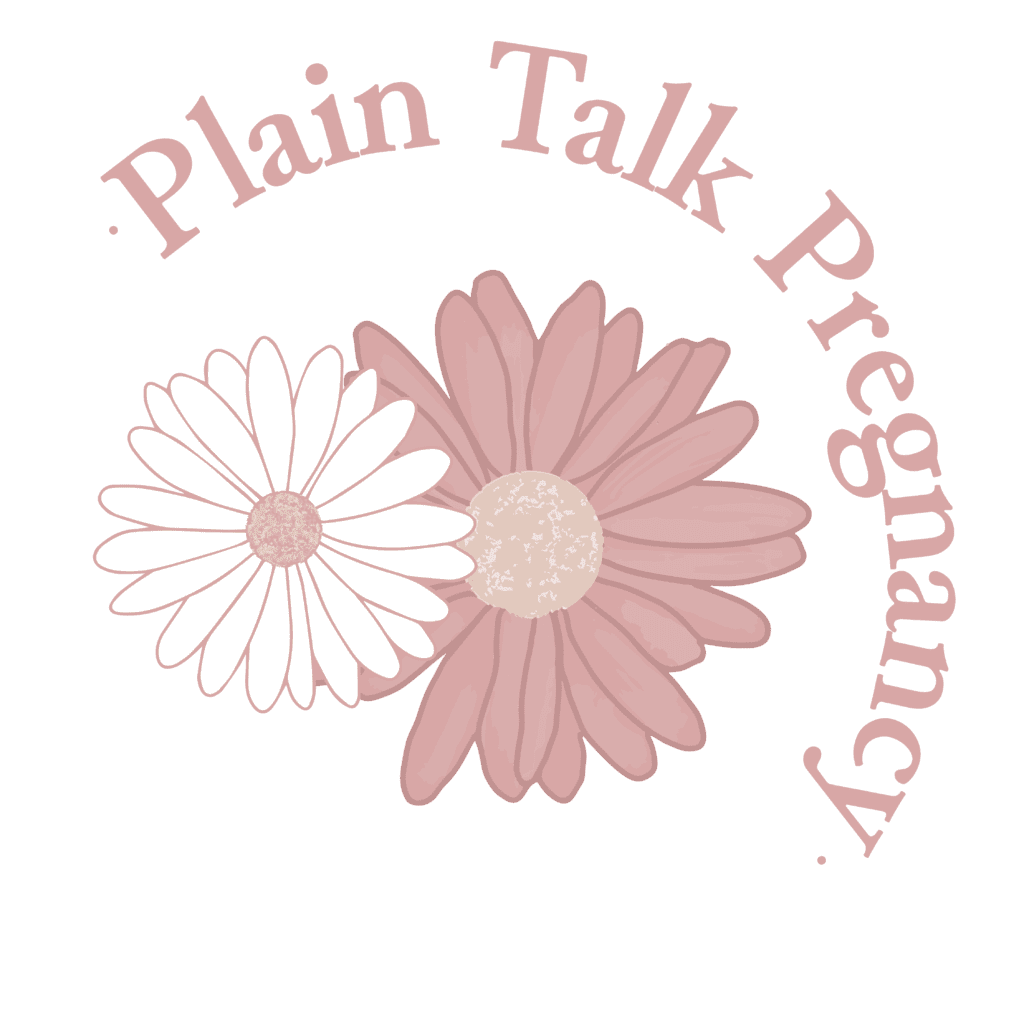
About Plain Talk Pregnancy
About Plain Talk Pregnancy
Because informed consent starts with information
Plain Talk Pregnancy exists to provide evidence-based, human-oriented information, framed in plain language and backed up by formal opinions from reputable organizations. Our biggest goal is to give you, the pregnant parent, the resources and information you need to make the most informed decisions in your prenatal care.
Mission
Sharing clear and credible information to inform your prenatal care.

PTP provides evidence-based, human-oriented information to allow expecting parents to make the most informed decisions in their care.
Vision
An informative and respectful environment for all expecting parents.

Expecting parents have all necessary information to make informed decisions in their care.

All community members respect and value each others’ perspective and decisions.
Core Values
Respect, Clarity, Credibility, Context.

Respect – In such a large and diverse community, respect is paramount.
- We respect all community members’ identities, using inclusive language and preferred pronouns at all times.
- We also use respectful words. Recognizing that disagreements will happen, we are committed to evaluate the argument and not the person. We will enforce this rule in reader comments as well.
- Above all, we respect individual choice. Regardless of information presented or recommendations made, your choices are always yours alone.

Clarity – Plain Talk Pregnancy was created to provide important information in a clearly understandable format. We make every effort to define terms, clearly explain statistics, and share information in the plainest language possible.

Credibility – Credibility in information and analysis.
- We source our factual information from reliable, verifiable, peer-reviewed research and formal opinions provided by professional medical organizations.
- We reference and provide sources for all factual statements.
- We make every effort to balance inclusion of all available credible sources.
- If evidence is weak, conflicts with other evidence, or is lacking, we mention it.
- When we share anecdotal information, it is clearly marked as such. Anecdotal information is used to demonstrate context and impact, but never as a substitute for population data.

Context – Information is nothing without context.
- We share clearly marked anecdotal information to provide real-world details about the impact of potential outcomes in pregnancy.
- To ensure balance, we include anecdotes for both best case and worst case scenarios.
- This inclusion of contextual information gives our data real-world, human-oriented value.
Miranda's Story
On 29 June 2017, I went to the hospital for a routine prenatal appointment and found my son had died overnight. I was 41 weeks pregnant.
Despite concurrent care with an obstetric and a certified nurse midwife (CNM) practice, childbirth education, and participation in a home nurse preparation program, I had no idea stillbirth was a realistic possibility. Not one of my providers had even mentioned it to me.
In the years since my son’s death, I have realized my experience is unfortunately common. In the United States today, stillbirth affects 1 in 160 pregnancies, and yet many bereaved parents express similar frustration that they were not warned or informed of the risks. This needs to change.
Plain Talk Pregnancy was born out of a desire to make that change.
Since my son’s death, I have made a point of becoming better informed. I’ve learned more about pregnancy and prenatal education. I’ve started following and reading opinions from professional organizations such as ACOG, as well as specialized organizations such as the Preeclampsia Foundation and Kicks Count, among others.
Plain Talk Pregnancy is my effort to provide clear information on the risks and resources that were not provided to me. PTP will talk about the benefits and risks of individual prenatal practices and choices, and will provide evidence-based, human-oriented information to allow expecting parents to make the most informed decisions about their care.
My son died because this information was not provided to me. I am doing everything in my power to make a difference for you.
Thank you for joining me,
Miranda Hernandez


Plain Talk Pregnancy Disclosures & Bias
(Miranda Hernandez)

I am a writer and parent to two children: my first child, Adrian James, was stillborn at term due to complications from undiagnosed preeclampsia. His living sister “Peanut” is a toddler. Read more about Adrian’s story at my other website, Adrian’s Elephant.

I am college educated, but NOT in medicine or any medical field.
I hold a BA in Literature and Writing from UCSD, and a MA from OU that included two graduate-level courses in statistical and data analysis.

I am not an expert, and I will never claim to be one.
(I am looking for medical experts (obstetricians, certified nurse midwives, perinatologists, nurses working on L&D or pediatrics, and pediatricians) to serve as reviewers for my articles. Interested? Contact me.)

I get my factual information from two sources:
1. Professional medical organizations such as WHO, CDC, ACOG, and AAP; and
2. Reliable, verifiable, peer-reviewed research.
On occasion, I will also solicit anecdotes through acquaintances and social media. However, anecdotes are always marked as such, and are used to discuss impact, not likelihood.

I make every effort to keep sources balanced and to acknowledge when advice and opinions from different professional organizations and/or different reliable studies disagree.
I am always open to new information, provided it is reliable, verifiable, and peer-reviewed.

Since I am not a medical professional, I will never ask you to trust my opinions alone. All information I provide will be linked to or sourced from data provided by one of the above-mentioned sources. I encourage you to read and evaluate until you feel comfortable with your own understanding, opinions, and personal decisions.
Additionally, all information should be discussed with your or your child’s medical provider before making decisions or changing decisions about your care.

I am always open to factual correction. If I have misunderstood, misinterpreted, or misstated anything, please let me know and I will correct it.
If you disagree with conclusions I’ve made that are based in fact, I will honor your opinion, but please understand we may not always agree.

My primary motivation is to provide the type of information in the type of format that was not readily available to me during my first pregnancy.

All writers and information providers have bias. As the mother of a deceased child, I am biased towards ensuring parents have the necessary information to make the most informed choices in their care.
I am also biased to hope that parents understand the potential impacts of different outcomes.

I am not selling anything related to prenatal or infant care or education, nor do I plan to create anything for sale in this area in the future.
(I do run a small web design business associated with my related site, Adrian’s Elephant).

I am not being financially compensated by writing and operating this site.
I do occasionally re-post articles to Medium where I may be financially compensated according to views.
If this site is successful, I hope to runs ads in the future, which will help me to break even with the cost of medical consultants and web hosting fees.
I do not plan to make a profit from this site.

Information provided on this site and the related social media accounts is provided 100% free of charge.

I do not participate in any affiliate programs outside of my web design business.
If I ever recommend a prenatal or infant-care-related product, it will be solely because I personally believe it is a worthwhile product. I do not receive income from reviews, recommendations, or sales.

Miscellaneous disclosure: Due to my personal history, I feel personally failed by the natural birth community. I have written and shared my personal thoughts on this subject in other places, including my other website, Adrian’s Elephant. Although I feel failed by this community, I will not be posting my personal opinions here on PTP.

This is my full disclosure. I am open to answering any additional questions that haven’t been covered here.
I also challenge you to use these same questions as a guide in evaluating the trustworthiness of any other prenatal or infant care blog, website, or influencer.


What does it mean to be "Human-Oriented?"
We are all familiar with statistics. Whether we realize it or not, we talk about statistics daily.
What is the likelihood it will rain today? How likely am I to miss my morning meeting if I stop for coffee on the way to work? Should I buy a lottery ticket?
The thing is, as human beings, life is about more than just statistics. We also have to consider the impact of what those statistics mean, and some are more impactful than others.
Borrowed from the business world, “human-oriented” is a term that acknowledges the real-world impacts of potential outcomes, regardless of their likelihood.
As used in Plain Talk Pregnancy, human-orientated information is defined as that which utilizes contextual data (often anecdotes) to provide context to the impacts of potential outcomes. Context includes a diverse spectrum encompassing the entire prenatal and labor & delivery experience, as well as any lasting outcomes and effects.
Plain Talk Pregnancy hopes that by providing human-oriented data—both best case and worst case—expecting parents will be better equipped to make informed decisions in their care.
Target Audience;
Is this the right blog for you?
The Plain Talk Pregnancy target audience is comprised of new or expecting parents who are interested in evidence-based, human-oriented information about all aspects of prenatal care.
The average PTP reader is open to credible, evidence-based information, and is comfortable consuming anecdotal information about the impacts of different outcomes in pregnancy, regardless of statistical likelihood.
PTP readers are respectful of one another and individual choice, and are committed to engaging in kind and respectful dialogue in the comments of this site and with each other.
Due to resource limitations, the bulk of PTP content will focus on information relevant to an American audience; however, we will do our best to point you in the right direction for international resources if requested.
Please note: Plain Talk Pregnancy adheres to general medical guidelines regarding routine vaccination. We understand individuals many choose differently; however, discussion on efficacy or desirability of routine vaccination is outside the scope of the Plain Talk Pregnancy mission.
Copyright Statement
Unless otherwise indicated, all content on the Plain Talk Pregnancy website is copyright Plain Talk Pregnancy as of the year of publication.
The Plain Talk Pregnancy logo and graphic elements were created specifically for Plain Talk Pregnancy by Aleina Creative Co in 2020.
You are free to share Plain Talk Pregnancy products via the download and sharing options enabled on the site. Please contact us via info@plaintalkpregnancy.com or using the contact form below to discuss sharing via other methods.
View our full Terms & Conditions here.
Resources & References
Because Plain Talk Pregnancy is written from a lay-person’s perspective, we encourage you to utilize professional sources including consulting with your primary care or prenatal care provider prior to making any decisions or changing any decisions about your care.
You can view the sources referenced by Plain Talk Pregnancy here.
View the full Plain Talk Pregnancy Disclaimer Statement here.



